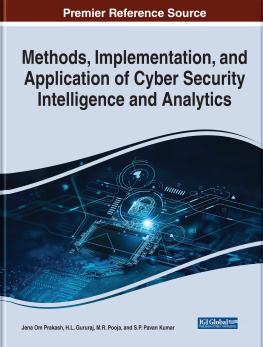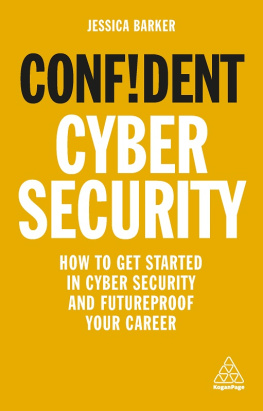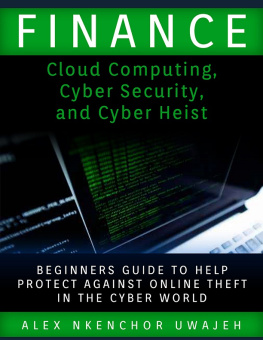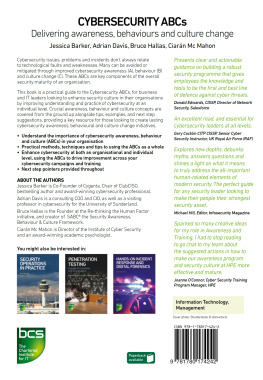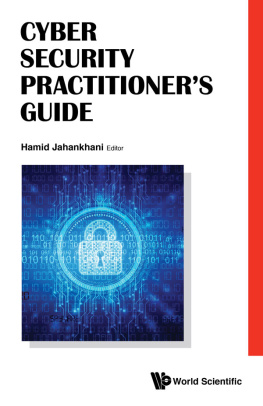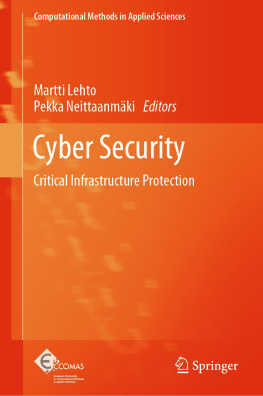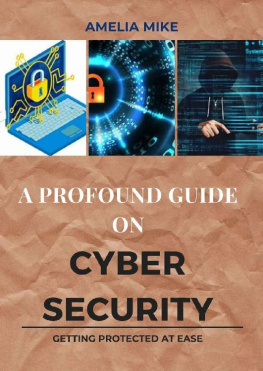H James - The Pocket Guide to Cyber Security
Here you can read online H James - The Pocket Guide to Cyber Security full text of the book (entire story) in english for free. Download pdf and epub, get meaning, cover and reviews about this ebook. year: 2020, publisher: Usha D & James H, genre: Romance novel. Description of the work, (preface) as well as reviews are available. Best literature library LitArk.com created for fans of good reading and offers a wide selection of genres:
Romance novel
Science fiction
Adventure
Detective
Science
History
Home and family
Prose
Art
Politics
Computer
Non-fiction
Religion
Business
Children
Humor
Choose a favorite category and find really read worthwhile books. Enjoy immersion in the world of imagination, feel the emotions of the characters or learn something new for yourself, make an fascinating discovery.

- Book:The Pocket Guide to Cyber Security
- Author:
- Publisher:Usha D & James H
- Genre:
- Year:2020
- Rating:4 / 5
- Favourites:Add to favourites
- Your mark:
- 80
- 1
- 2
- 3
- 4
- 5
The Pocket Guide to Cyber Security: summary, description and annotation
We offer to read an annotation, description, summary or preface (depends on what the author of the book "The Pocket Guide to Cyber Security" wrote himself). If you haven't found the necessary information about the book — write in the comments, we will try to find it.
H James: author's other books
Who wrote The Pocket Guide to Cyber Security? Find out the surname, the name of the author of the book and a list of all author's works by series.
The Pocket Guide to Cyber Security — read online for free the complete book (whole text) full work
Below is the text of the book, divided by pages. System saving the place of the last page read, allows you to conveniently read the book "The Pocket Guide to Cyber Security" online for free, without having to search again every time where you left off. Put a bookmark, and you can go to the page where you finished reading at any time.
Font size:
Interval:
Bookmark:
- Letters to and from family and loved ones.
- Official documents that could be used to identify you i.e. your passport or birth certificate.
- It could be your credit card number and pin, or login details for your online bank accounts.
- It could be financial records or personal records that describe and prove your identity (or other peoples identity if you have their information on your computer).
- It could be photos of you or your children.
- Pictures and video: Do you want your family photos to be lost or falling into the wrong hands? This used to be the first thing people wanted to save in a fire when photos were of the paper variety. Photos are memories and memories are considered highly valuable by most people.
- Work/assignments: What if you lost the novel you were working on, a big assignment or sensitive work information? Imagine how you would feel if it had been stolen and placed out there on the web?
- List of contacts: Imagine if you lost your collection of contact details, such as phone numbers; it would be a big task to get them all back, if it is at all even possible.
- Financial information: Being audited by the tax offices is no joke and it is seriously not funny if you lose all your tax receipts or previous tax returns. If you have other peoples financial data, it is imperative you protect it.
- Identity information: Cyber crooks can take your personal details and if they have enough information, they can mimic your identity. Identity theft is quite sophisticated and hard for other organisations to detect early enough, especially if the identity thief is good at covering their tracks. Your best protection is to secure your identity information (such as your passport or drivers license) so that the cyber crook has too many gaps in your personal information to avoid suspicion when they try to impersonate you. This also applies to other peoples identity if you have their personal information.
Font size:
Interval:
Bookmark:
Similar books «The Pocket Guide to Cyber Security»
Look at similar books to The Pocket Guide to Cyber Security. We have selected literature similar in name and meaning in the hope of providing readers with more options to find new, interesting, not yet read works.
Discussion, reviews of the book The Pocket Guide to Cyber Security and just readers' own opinions. Leave your comments, write what you think about the work, its meaning or the main characters. Specify what exactly you liked and what you didn't like, and why you think so.

